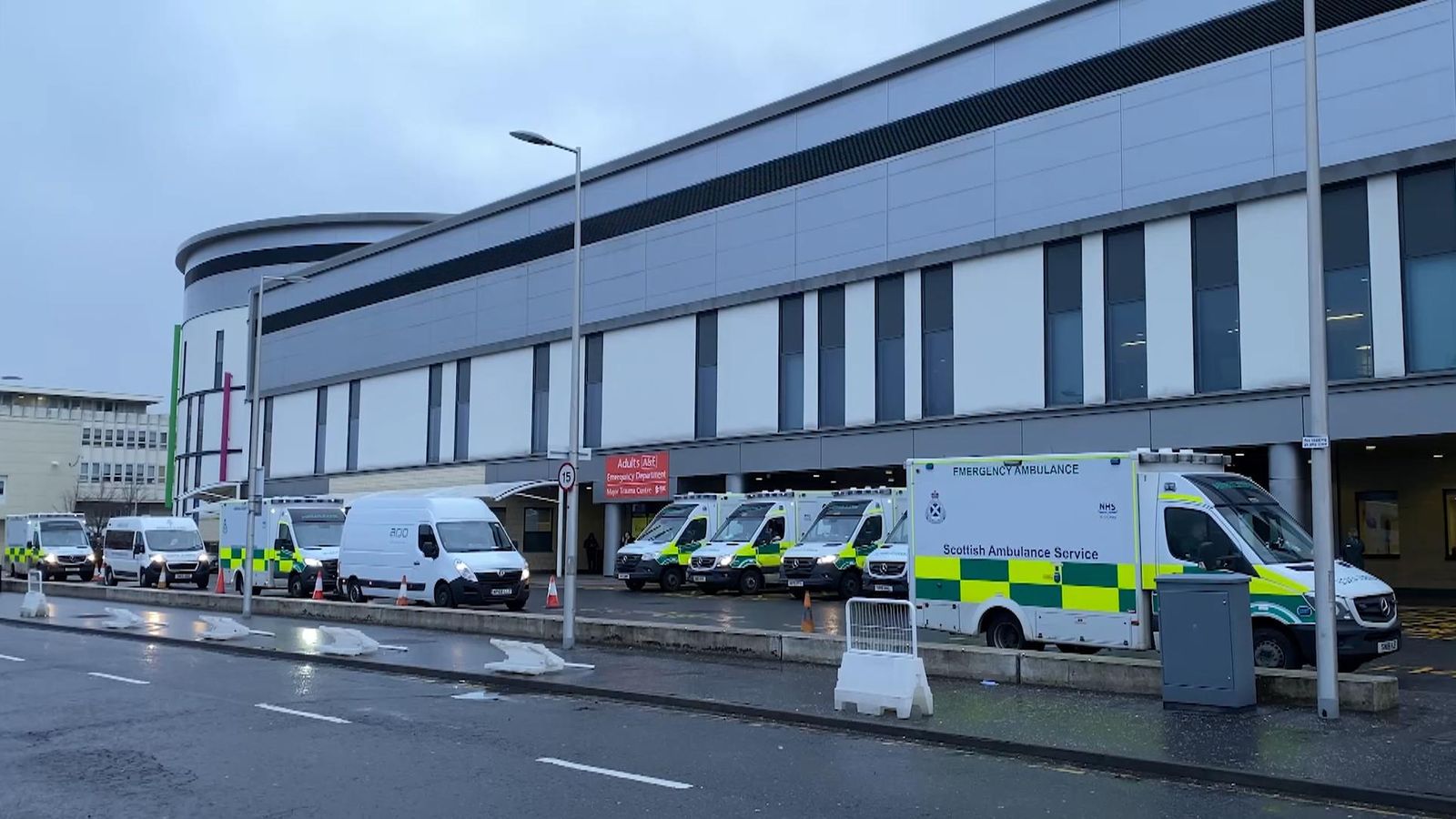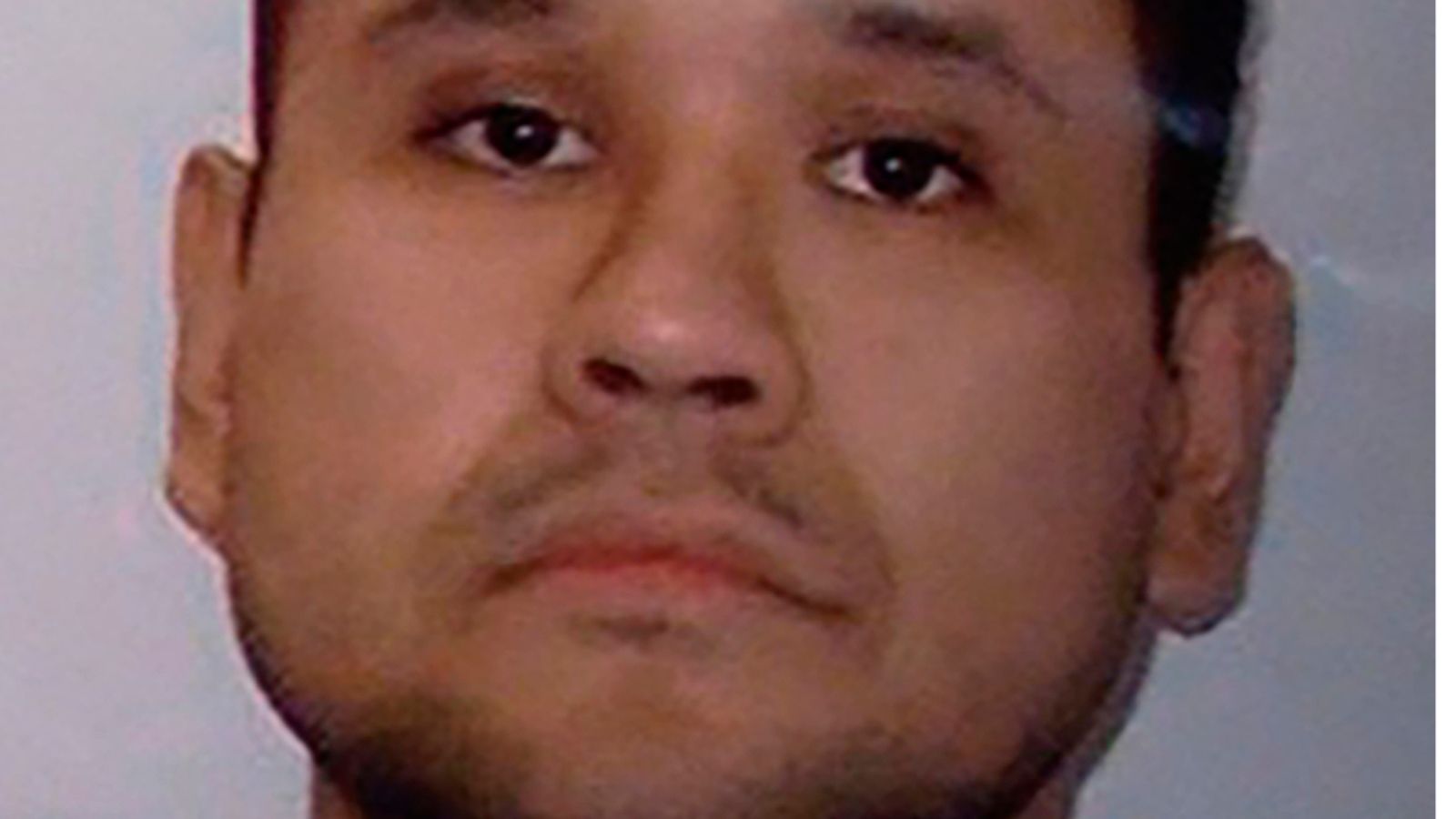Patients are dying and staff are broken – as workers say it doesn’t get much grimmer than this.
The human toll at the sharp end of the worst health crisis in Scotland’s NHS history continues to escalate to dangerous levels.
Families, who have lost loved ones on trollies in overcrowded hospital corridors, have told Sky News that it is like a “disaster zone” where staff are fighting a losing battle and the ill are treated like “animals”.
It is estimated that between 40 and 60 lives are being lost every week as a direct result of this emergency.
Lung cancer patient, Noreen Craig, 71, was taken to the Queen Elizabeth University Hospital in Glasgow after becoming ill with a chest infection at her Gorbals home in December.
On arrival, her loved ones say she was put on a trolley in a side room because there were no beds available. She died hours later without making it to a ward.
‘Animals would be treated better’
Beth Rigby on a new political year, strikes, the NHS crisis – and Angela Rayner
Millions more at risk of heart attack or stroke could be offered statins under new NHS guidance
There’s a dilemma at the heart of the NHS – but politicians don’t want to talk about it | Adam Boulton
Her son Stuart Craig told Sky News: “It was like a disaster zone.
“I actually felt sorry for the nurses, what they had to deal with. There were ambulances everywhere. It was carnage.”
He said: “I think my mum would have still been alive if she was given the help we were promised, if she was taken to a proper ward.
“Animals would be treated better than the help and care she received.”
NHS Greater Glasgow and Clyde has since apologised to the family.
If you are an NHS worker and would like to share your experiences with us anonymously, please email [email protected]
Unlike some matters, the SNP-led Scottish government is wholly responsible for the devolved health service.
Nicola Sturgeon‘s administration has been in power for 15 years.
Opposition politicians say her government has lost its grip and fallen asleep at the wheel.
These are claims she strongly refutes as she points to the thousands of extra NHS staff hired in that time.
Amid the current situation, the first minister is accused of pointing the finger of blame at patients for turning up at hospitals unnecessarily.
But critics suggest this mess has been years in the making with hospital “exit blocks” being the fundamental issue – not A&E attendances.
A record number of beds are being taken up by people who no longer need to be in the wards because social care places are not ready for the next step in their recovery.
Read more:
Health authorities suspend non-urgent operations due to A&E crisis
NHS crisis: Government to block-book beds in residential homes
Almost every single performance indicator within Scotland’s emergency departments has been flashing red for a long while.
Targets for waiting times are constantly breached, with a record number of patients waiting more than 12 hours to be seen.
‘People more aggressive on the phone’
GP surgeries are also bearing the brunt of this pressure cooker situation.
One Glasgow surgery I visited is dealing with 80 emergency appointments a day compared to 16 a few years ago.
Practice managers say people are more aggressive and desperate when they phone.
One GP said the number of emergency consultations had gone up from around 16 to 18 per day to around 80.
Dr John Montgomery, who has been a doctor for more than 30 years, told Sky News: “This is the highest level of activity in general practice in Glasgow ever recorded.
“The reality is that people will die. There is no question about that.
“This is not a safe, sustainable situation.”
Everyone agrees this is not safe or sustainable. There are questions about what the National Health Service may look like when the worst of the crisis eases.
Higher earners in Scotland pay more tax in their pay packets compared to the rest of the UK.
Money that Scottish ministers say will go directly to the NHS. But some Scots see a beleaguered system no better than other nations across the country.







